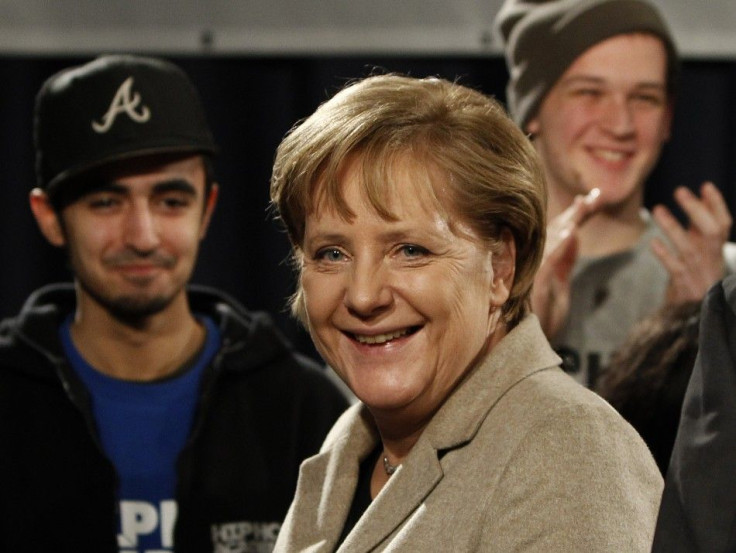Merkel quickly replaces fallen minister

German Chancellor Angela Merkel quickly replaced popular Defence Minister Karl-Theodor zu Guttenberg on Wednesday, hoping to put his plagiarism affair behind her to focus on three state elections.
Merkel told a news conference that Interior Minister Thomas de Maiziere would take over the defence portfolio and Hans-Peter Friedrich, the parliamentary leader for the Christian Social Union (CSU), would succeed de Maiziere as interior minister.
It's important to quickly show clarity and our ability to act, Merkel said of the changes that were announced faster than expected. It's right, it's good and helpful that this quickly answers the questions that you would otherwise be asking us.
Guttenberg quit on Tuesday after admitting to copying part of a doctoral dissertation, stunning Merkel and depriving her conservatives of their brightest star ahead of three important regional elections in late March.
Merkel, who had ardently defended Guttenberg against the plagiarism charges, admitted she was surprised by his resignation. Her Christian Democrats (CDU) were routed in an election in Hamburg last month and face more defeats this month.
The CSU, Bavarian sister party to Merkel's Christian Democrats (CDU), retained the rights to propose a replacement for Guttenberg, one of three CSU ministers in Merkel's cabinet.
Originally CSU leader Horst Seehofer said a decision would be made within a few days. The timetable was accelerated -- in part due to elections in Saxony-Anhalt and Baden-Wuerttemberg where the CDU could lose power in late March.
CLOSE RACE IN KEY STATE
An opinion poll published on Wednesday showed Merkel's centre-right coalition falling into a dead-heat with the opposition Social Democrats-Greens in Baden-Wuerttemberg, the most important of seven state elections for Merkel this year.
The CDU has ruled Baden-Wuerttemberg, a conservative bastion in the southwest, since 1953 and a defeat there on March 27 would cause major problems for Merkel. The SPD are expected to retain power in a third state on March 27, Rhineland-Palatinate.
Merkel had been eager to avoid any turbulence ahead of the state elections and two summit meetings in Brussels, where European Union leaders are expected to agree to raise the size and scope of a euro zone bailout fund.
The opposition has accused Merkel of taking a tough position on the fund, which is expected to be agreed at a summit on March 24-25, because of the state elections.
Any perceived relaxation of terms for euro zone stragglers is likely to meet public opposition because German taxpayers fear they would have to pay a large portion of the bill.
Guttenberg, who had been accused of copying parts of the dissertation without correct attribution, was stripped of his doctorate last week.
At first Guttenberg rejected the charges as fanciful. Later, after scores more copied passages were discovered, he acknowledged having copied sections but said this had been unintended, an oversight caused by pressure of work, and never deliberate.
© Copyright Thomson Reuters 2024. All rights reserved.











